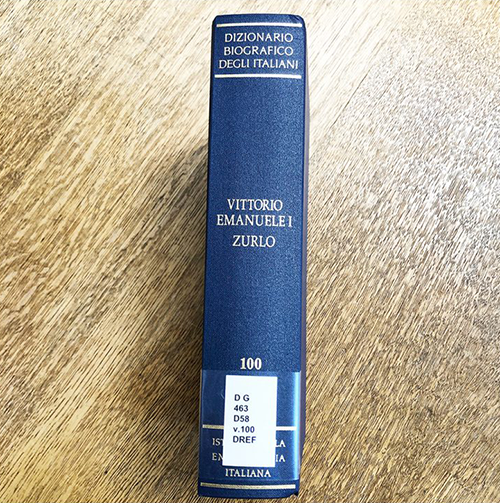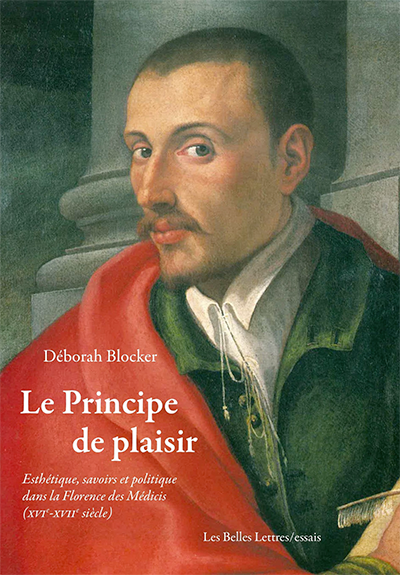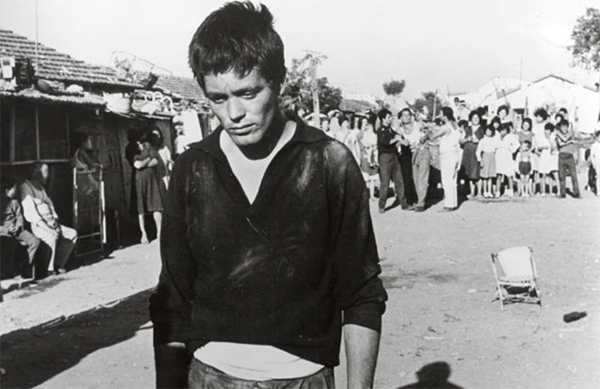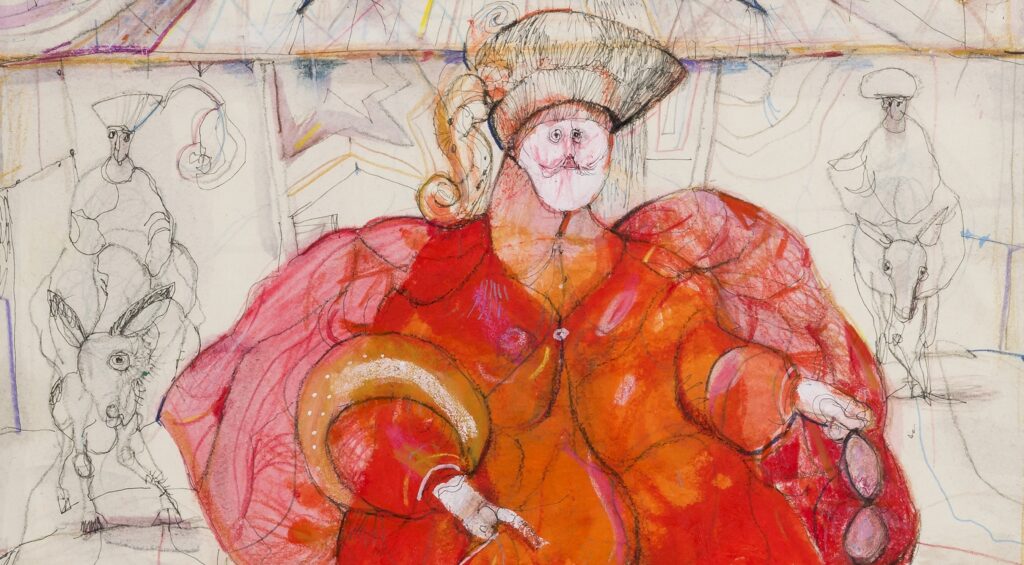Tag: Italian studies
AOQU (Achilles Orlando Quixote Ulysses). Rivista di epica
New Book by Henrike Christiane Lange
In this book, Henrike Lange takes the reader on a tour through one of the most beloved and celebrated monuments in the world – Giotto’s Arena Chapel. Paying close attention to previously overlooked details, Lange offers an entirely new reading of the stunning frescoes in their spatial configuration. The author also asks fundamental questions that define the chapel’s place in Western art history. Why did Giotto choose an ancient Roman architectural frame for his vision of Salvation? What is the role of painted reliefs in the representation of personal integrity, passion, and the human struggle between pride and humility familiar from Dante’s Divine Comedy? How can a new interpretation regarding the influence of ancient reliefs and architecture inform the famous “Assisi controversy” and cast new light on the debate around Giotto’s authorship of the Saint Francis cycle?
Illustrated with almost 200 color plates, including individual images of each scene in the narrative cycle, this volume invites scholars and students to rediscover a key monument of art and architecture history and to see it with fresh eyes.
“Henrike Lange’s book on Giotto’s Arena Chapel changes our view of this key work of painting in Italy around 1300.” – Ulrich Pfisterer, Director of the Zentralinstitut für Kunstgeschichte; LMU, Munich
“Dr. Lange’s discovery is so all-encompassing and so to the point… It is now possible to bridge the Anglo-Saxon and Italian views of Giotto where once they were thought to be irreconcilable: a great step forward for the field.” – Laurence B. Kanter, Chief Curator, Yale University Art Gallery
“Lange shows how the theme of triumph is at once central and inexhaustible in the Arena Chapel – its structure, imagery, physical presence, context. The book is itself a vivid triumphal procession of ways of seeing, scholarship, discovery, and critical thinking.” – Randolph Starn, UC Berkeley History
“Lange’s discovery is completely new and original: an entirely convincing case built on the foundations of history, literature, philosophy, political iconography, and theology.” – Andrew Stewart, UC Berkeley History of Art and Classics
“Lange has the rare ability to build bridges for the reader with her command of European languages that allow her to translate and integrate the vast libraries of research on Giotto written in different linguistic and scholarly traditions. The very elegance and clarity of her writing suggest that Lange’s will be a contribution of real significance and will have quite an impact on medieval and Renaissance studies.” – Giuseppe Mazzotta, Sterling Professor of Italian, Yale University
“At its heart Lange’s impressive book relays an intensely visual argument. It is a scholarly triumph in itself to explicate the intimate relation – architectural, political, theological – between the Arena Chapel and a famous Roman prototype, the Arch of Titus. All scholars and students of the period will need to engage this powerful historical proposition and its implications for Italian Trecento visual culture. But Lange also finds the full measure of Giotto’s triumph as a painter.” – Whitney Davis, UC Berkeley History of Art
[from publisher’s site]
Henrike Christiane Lange is Associate Professor in History of Art and Italian Studies at the University of California, Berkeley. Lange completed her Magister Artium at Universität Hamburg, Germany, before earning her PhD at Yale University. The present book is the culmination of two decades of research at sites, archives, and collections across Europe.
Giotto’s Arena Chapel and the Triumph of Humility.
Cambridge: Cambridge University Press, 2023.
Sourcing the Past with the Dizionario Biografico degli Italiani

The publication of the hundredth (and final) volume of the Dizionario Biografico degli Italiani (Dbi, Biographical Dictionary of the Italians) last year by Istituto della Enciclopedia Italiana (Istituto Treccani) is a momentous occasion that may have been overshadowed by the global pandemic when libraries were shuttered and cataloging backlogs amassed. In the spirit of other European projects such as the Dictionary of National Biography (UK), the Diccionario biografIíco español (Spain), and the Allgemeine Deutsche Biographie (Germany), this ambitious biographical dictionary was conceived in 1925 with national-patriotic criteria in mind during the first phase of the National Fascist Party’s consolidation of power in Italy. Because of setbacks during and following World War II, the first volume did not appear in print until 1961 yet nearly every year thereafter, at least one or two volumes were added to the evolving reference set.
The enterprise endeavored to include the most illustrious figures in the history of Italy from the fall of the Western Roman Empire to the present day. Responding to the needs of the digital age, these 40,000 scholarly entries with sources and bibliographies have been made freely available online (but not free of ads) and integrated with other reference works they publish. While new entries are added to the online portal which also comprises Enciclopedia dell’Italiano, Dizionario di Filosofia, Enciclopedia Machiavelliana, Enciclopedia del Cinema, etc., entries in the print tomes are subject to the era in which they were authored. One of the conditions for inclusion in the Dbi is that of being deceased. According to its current director Raffaele Romanelli, the work is doomed to bear witness only to the past if worthy cultural figures are overlooked. He explains, “I have here a ready list of Italians who passed away this year: Alberto Arbasino, Franca Valeri, Rossana Rossanda. Will they all be destined for exclusion?”
The neo-Hegelian idealist philosopher, educator, and fascist politician Giovanni Gentile, who was also director of the Enciclopedia Italiana, referred to the work as “the golden book of the Italian stock.” In recent years, the notion of relevance has expanded to the world of business, technology, even of media and fashion, and includes previously unthinkable icons such as gay activist playwright Mario Mieli, notorious pornstar Moana Pozzi, and soccer heroes Enzo Bearzot and Dino Viola. According to Romanelli, there really never was a predefined canon. “To give an idea of the criterion, I would have liked to have included Pinocchio and Don Abbondio, non-existent but fundamental,” he quipped. Naturalized citizens such as the Swiss botanist Daniel Bovet and the mezzo-soprano Cathy Berberian of Armenian-American descent are included but entries for women remain overall at an appalling four percent. There are entries for fiction writers Natalia Ginzburg and Elsa Morante but it could be a long time before we see one for famous living writers such as Elena Ferrante. In 2015, the influential feminist art critic Carla Lonzi was added to the online version. Fans of the late philosopher, writer, and linguist Umberto Eco who died in 2016 still awaits an entry in the Dbi.
UC Berkeley is one of three dozen libraries across the country with the complete print set of 100 volumes. Most research libraries canceled their standing orders somewhere along the way. But what does this mean now when updates are not possible in a standard reference work such as this? Does the whole work become a cultural relic forever frozen in the epoch in which it was created? The lack of a critical lens and blatant exclusion of worthy cultural, political, scientific, and historical figures is reason enough to keep updating the work, illuminating the overlooked both from Italy’s past and recent years. While promises of forthcoming appendices and the technological capability of Trecanni to insert new entries and revise old ones in the online edition, the fate of this national reference work and others like it remains unknown. Students continue to rely, as many of us do for quick look-ups, on Wikipedia as the golden age of cumbersome print reference works sunsets. The burning question we should be asking ourselves is not what we would do without Wikipedia but what would we do without these print reference treasures, or knowledge bases, that constitute its foundation?
Sources consulted
Dizionario Biografico degli Italiani. Istituto della Enciclopedia Italiana fondata da Giovanni Treccani, https://www.treccani.it/biografico. Accessed 31 March 2022.
“Dizionario biografico degli italiani – Immagini.” YouTube, 14 December 2010.
https://youtu.be/pul4bOZ7lAs. Accessed 31 March 2022.
Fiori, Simonetta. “L’ultimo degli italiani.” La Repubblica, 12 December 2020. https://ricerca.repubblica.it/repubblica/archivio/repubblica/2020/12/12/lultimo-degli-italianiRobinson23.html. Accessed 31 March 2022.
“Istituto della Enciclopedia Italiana.” Enciclopedia on line. Istituto della Enciclopedia Italiana fondata da Giovanni, https://www.treccani.it/enciclopedia/istituto-della-enciclopedia-italiana. Accessed 31 March 2022.
Neveu, Bruno. “Biographie et historiographie: Le Dizionario biografico degli italiani.” Journal des Savants, vol. 1, no. 1, 1971, pp. 32–67, https://doi.org/10.3406/jds.1971.1240. Accessed 31 March 2022.
Sofri, Adriano. “Un monumento di civiltà: il centesimo volume del Dizionario biografico italiano.” Il Foglio, 23 December 2020. https://www.ilfoglio.it/piccola-posta/2020/12/23/news/un-monumento-di-civilta-il-centesimo-volume-del-dizionario-biografico-italiano-1588368. Accessed 31 March 2022.

Originally published in the European Studies Section Newsletter of the Association of College and Research Libraries.
New book by Déborah Blocker

Le Principe de plaisir: esthétique, savoirs et politique dans la Florence des Médicis (XVIe-XVIIe siècle) tells several stories in one. On the one hand, that of one of the most original and productive academies of the late Florentine Renaissance, the Accademia degli Alterati (1569-ca. 1625). On the other hand, that of a restricted social group, made up of a few dozen young Florentine patricians whom the Medicis did not regard favorably because their ancestors had fought to maintain the oligarchic Republic. These young nobles made their academy a place where they could spend their leisure time and share their pleasures—artistic and otherwise—but also a collective where they could work together on their integration into Medicean court society. Between 2008 and 2018, Blocker researched the social and political circumstances in which new conceptions and uses of the “arts” emerged in the academic culture of late Renaissance Florence, through an in-depth archival study of the Accademia degli Alterati.
Thirdly, this book tells the story of a body of documents, now dispersed, but which once formed the basis of all the activities of the “Altered.” These thousands of folios of documents, and very largely unexplored—contain academic speeches, letters, activity registers, dialogues, collectively corrected poems, etc. Their analysis makes it possible to follow the day-to-day activities of the Alterati for nearly six decades, and to examine, through the material form that their work took, how collective intellectual horizons emerged within them, over the course of their debates.
Through the constant intertwining of these three stories, this book finally tells a fourth: that of the actions, activities and discourses which, within the academy of the Alterati, participated in the constitution of the aesthetic in knowledge (and in know-how) of a new type. Through the case of the Alterati, this book thus raises the question of the formalization of the aesthetic knowledge and practices that are ours today—and that of the links between their emergence and the rise of modern political authoritarianism, within early modern European aristocracies.
[translated from publisher’s site]
Déborah Blocker is professor of French and affiliated faculty in Italian Studies at UC Berkeley. She specializes in the social and political history of literary practices in early modern France and Italy, with a particular interest in theater, learned societies (academies), the history of philology and the history of early modern aesthetics. Her research relies heavily on the history of the book, as well as on manuscript studies. Her earlier work Instituer un ‘art’: politiques du théâtre dans la France du premier XVIIe siècle (Paris, Champion, 2009) examined the social and political processes through which early modern French theater was instituted into an art (1630-1660). This project led her to develop a larger curiosity for the social and political constitution and circulation of discourses on poetry and the arts in early modern Europe (1500-1900).
Le Principe de plaisir: esthétique, savoirs et politique
dans la Florence des Médicis (XVIe-XVIIe siècle)
Paris: Belles Lettres, 2022.
Celebrating Pasolini’s 100th Birthday

Italian film director, poet, writer and intellectual Pier Paolo Pasolini (1922-1975) would have turned 100 this year and Italy is not the only country celebrating his artistic achievements. Here in the Bay Area, the Italian Cultural Institute of San Francisco will present a series of public events exploring his life, his work, and his legacy during the months of September and October. The Berkeley Art Museum and Pacific Film Archive (BAMFA) has organized a retrospective of his films beginning the last week of October and continuing through November.
The UC Berkeley Library is home to 172 books authored or co-authored by Pasolini, 440 critical works about him, and 41 DVDs. In the Media Resources Center which is available by appointment only this semester, you’ll find more of his films than on Netflix, Amazon Prime, and Kanopy combined.
Calendar of Events:
September 1, 2022 – 11 AM
PIER PAOLO PASOLINI CORSARO Pier Paolo Pasolini Corsair
Marco Belpoliti presents his book Pasolini e il suo doppio (Pasolini and His Double)
In collaboration with the Leonardo Da Vinci Society SF
Venue: Zoom presentation
LEARN MORE & REGISTER
September 10, 2022
PASOLINI100 – HOMAGE TO PIER PAOLO PASOLINI FILM MARATHON
Experience the passion of Pasolini, the filmmaker who pushed the boundaries of politics, art and sexuality, at a screening of five of his most iconic films at the Castro Theatre. The retrospective will feature a special screening of Pasolini’s Medea starring soprano Maria Callas, and, in celebration of the joint centenaries of San Francisco Opera and Pasolini, San Francisco Opera will present a performance by soprano Mikayla Sager prior to the Medea screening.
This program is presented by Cinecittà, the Italian Cultural Institute of San Francisco, CinemaItaliaSF, and Artistic Soul Association, under the auspices of the Italian Consulate General of San Francisco.
Venue: The Castro Theatre
LEARN MORE & BUY TICKETS
October 5, 2022 – 6:30 PM
LA ROSADA E L’ARGILUT: The Places of Young Pasolini
A documentary exploring the places where Pier Paolo Pasolini lived and worked in his youth passing through the villages and countryside that the poet loved so deeply and depicted in his poetic and visual work.
Produced by Terra s.r.l. and directed by Roberta Cortella.
In cooperation with Regione Friuli Venezia Giulia and Association El Fogolar Furlan SF
Length: 35 min
Venue: Italian Cultural Institute of San Francisco @INNOVIT Spaces
Free admission, limited seating available
LEARN MORE & REGISTER
October 25, 2022 – 6:30 PM
ATREMIS DANZA | FUOCHI SEGRETI (Secret Fires)
A contemporary dance performance in celebration of Pasolini100
A production of Compagnia Artemis Danza/Monica Casadei, with the support of Ministero della Cultura, Regione Emilia Romagna
Presented by the Italian Cultural Institute of San Francisco
Venue: Brava Theatre, 2781 24th St., San Francisco
Free admission, limited seating available
LEARN MORE & REGISTER
October 22-November 27, 2022
PASOLINI RETROSPECTIVE @BAMPFA Berkeley
Copresented by BAMPFA and Cinecittà, Rome. The retrospective has been organized by Susan Oxtoby, BAMPFA, and Camilla Cormanni, Paola Ruggiero, Marco Cicala, Germana Rusico, Cinecittà. Presented in association with the Ministry of Culture of Italy.
LEARN MORE & BUY TICKETS


![Giotto's Arena Chapel and the Triumph of Humility [book cover]](https://update.lib.berkeley.edu/wp-content/uploads/2023/01/giotto.jpg)